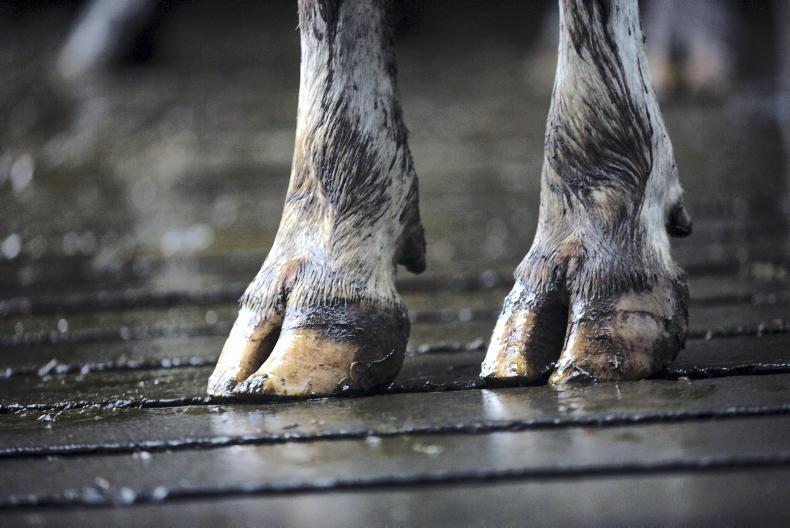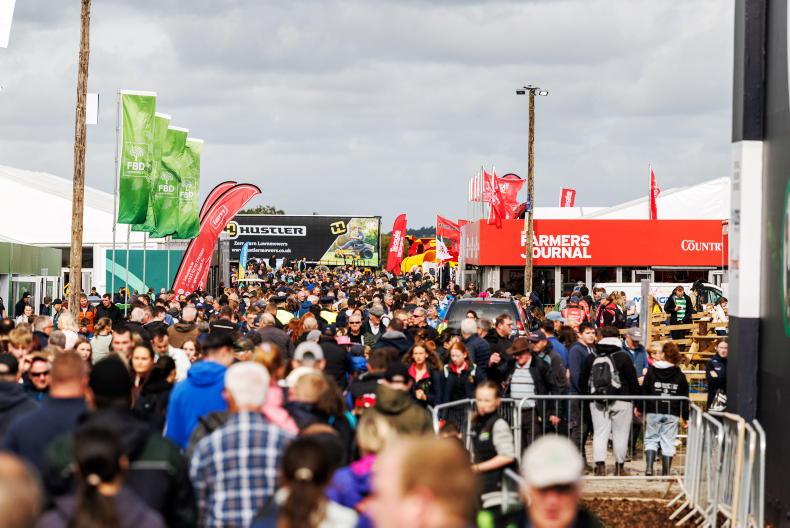The advanced dairy calf-to-beef course was designed for new and existing dairy calf-to-beef farmers who wish to upskill and learn what it takes to run an economically and environmentally sustainable dairy calf-to-beef system.
As part of the Teagasc DairyBeef 500 programme, the courses commenced in October last year.
One was run for interested students in the southeast of the country, with a second one taking place for students in the southwest.
About the programme
The primary goal of these courses was to provide students with the knowledge, skills and competence required to effectively plan, establish and manage a successful dairy calf-to-beef enterprise. Both courses were led by experts from the Teagasc DairyBeef 500 team.
Throughout the five days, students visited DairyBeef 500 demonstration farms in their regions. They also toured the dairy calf-to-beef unit located at the Teagasc Animal and Grassland Research and Innovation Centre, Grange, Co Meath.
Diverse topics
In addition to farm visits, the course covered a diverse range of topics over the five days.
These included selecting the most suitable calf-to-beef system for individual farms, calf rearing, essential infrastructure, effective grassland management, winter nutrition and the assessment of finished animals.

Teagasc dairy calf-to-beef students assessing cattle for slaughter.
Fergal Maguire is an adviser on the Teagasc DairyBeef 500 programme and is in charge of co-ordinating the course.
He told Irish Country Living: "The course is very practical, run over five days, on each of these days, students will visit different calf-to-beef farms to see how they are operating a successful operation.
"The course is set up in a way that whatever topic we cover will be relevant for that time of the year, for example we cover calf rearing in January so that students can get ready for calf rearing in the spring," said Fergal.
"Attendance throughout the course was good and a survey carried out among the students showed a high level of satisfaction with the course."
Both courses concluded in late August, with a total of 37 students successfully graduating from the programs.
There will be more regional calf-to-beef courses starting soon. For more information, visit here.
Read more
Women and Agriculture Conference 2023
Ireland takes on the Challenge
The advanced dairy calf-to-beef course was designed for new and existing dairy calf-to-beef farmers who wish to upskill and learn what it takes to run an economically and environmentally sustainable dairy calf-to-beef system.
As part of the Teagasc DairyBeef 500 programme, the courses commenced in October last year.
One was run for interested students in the southeast of the country, with a second one taking place for students in the southwest.
About the programme
The primary goal of these courses was to provide students with the knowledge, skills and competence required to effectively plan, establish and manage a successful dairy calf-to-beef enterprise. Both courses were led by experts from the Teagasc DairyBeef 500 team.
Throughout the five days, students visited DairyBeef 500 demonstration farms in their regions. They also toured the dairy calf-to-beef unit located at the Teagasc Animal and Grassland Research and Innovation Centre, Grange, Co Meath.
Diverse topics
In addition to farm visits, the course covered a diverse range of topics over the five days.
These included selecting the most suitable calf-to-beef system for individual farms, calf rearing, essential infrastructure, effective grassland management, winter nutrition and the assessment of finished animals.

Teagasc dairy calf-to-beef students assessing cattle for slaughter.
Fergal Maguire is an adviser on the Teagasc DairyBeef 500 programme and is in charge of co-ordinating the course.
He told Irish Country Living: "The course is very practical, run over five days, on each of these days, students will visit different calf-to-beef farms to see how they are operating a successful operation.
"The course is set up in a way that whatever topic we cover will be relevant for that time of the year, for example we cover calf rearing in January so that students can get ready for calf rearing in the spring," said Fergal.
"Attendance throughout the course was good and a survey carried out among the students showed a high level of satisfaction with the course."
Both courses concluded in late August, with a total of 37 students successfully graduating from the programs.
There will be more regional calf-to-beef courses starting soon. For more information, visit here.
Read more
Women and Agriculture Conference 2023
Ireland takes on the Challenge










SHARING OPTIONS